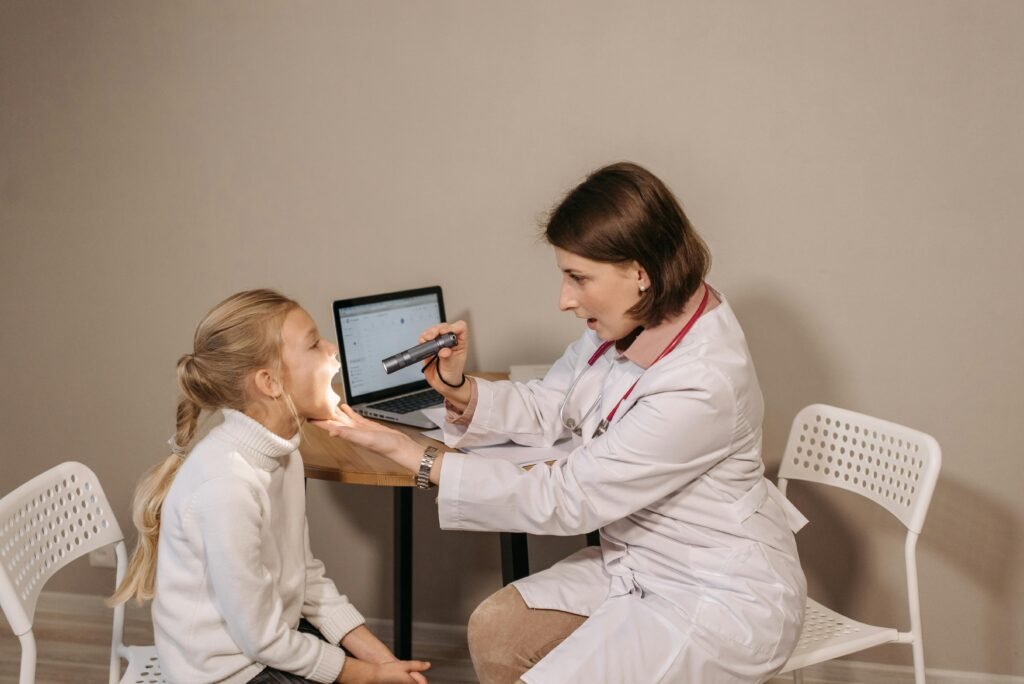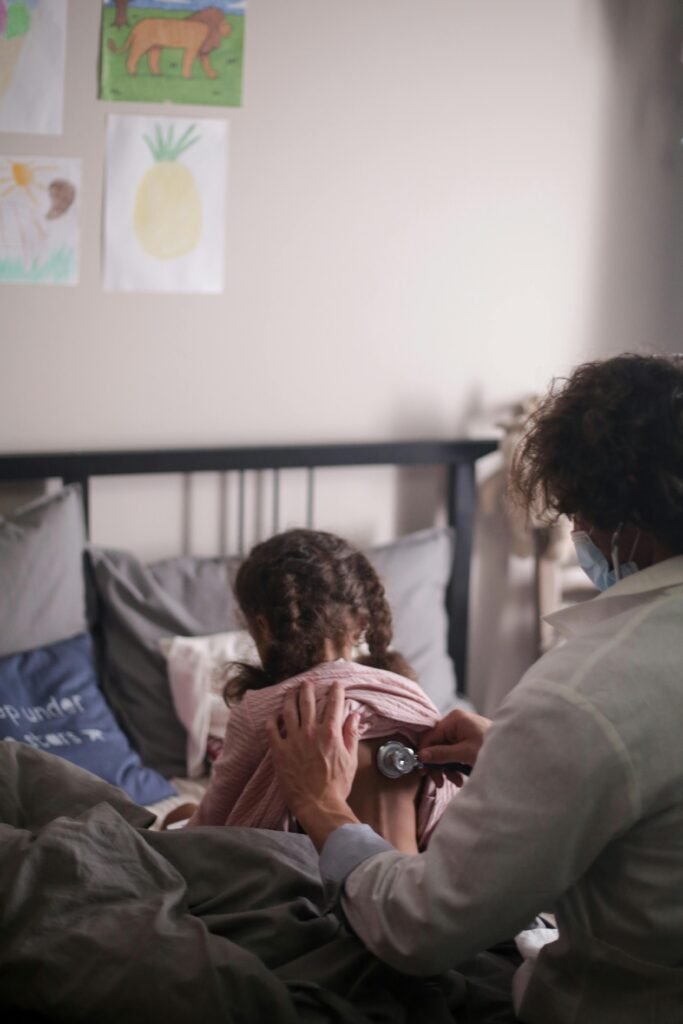Congratulations on the arrival of your little one! As a new parent, one question that may be on your mind is “When should I expect my baby to have their first pediatrician check-up after birth?” Well, fret not, because in this article, we will explore the recommended timeline for your baby’s first check-up and why it is crucial for their health and development. So, let’s dive in and discover when you should schedule that important first visit with your pediatrician.
Importance of Pediatrician Check-ups
Pediatrician check-ups play a vital role in ensuring the health and well-being of your baby. These regular visits provide a way for healthcare professionals to monitor your baby’s growth and development, ensuring that they are meeting important milestones. Pediatricians are trained to detect and intervene early in case of any health issues, giving your baby the best chance at a healthy start in life. Additionally, these check-ups provide an opportunity for parents to receive guidance on breastfeeding, nutrition, and vaccinations, which are crucial aspects of a baby’s overall health.
Monitoring the Baby’s Growth and Development
One of the primary reasons for pediatrician check-ups is to monitor the growth and development of your baby. During these visits, pediatricians will assess various factors such as weight, height, and head circumference to ensure that your baby is growing at a steady and healthy pace. By tracking these measurements, any potential growth concerns can be identified early on, allowing for timely intervention and appropriate management.
Apart from physical growth, pediatrician check-ups also focus on monitoring the development of important skills and milestones. Pediatricians will assess your baby’s motor, cognitive, and social-emotional development, providing guidance and support if any developmental delays are detected. Early intervention is key in helping children overcome developmental challenges and reach their full potential.
Ensuring Early Detection and Intervention of Any Health Issues
Pediatrician check-ups are essential for early detection and intervention of any health issues that your baby may face. During these visits, pediatricians conduct a thorough physical examination, checking for any signs or symptoms of illness or developmental concerns. They can identify and address a wide range of health issues, such as infections, allergies, congenital abnormalities, and developmental delays.
Early intervention is crucial for successful management of many health conditions. Regular check-ups allow pediatricians to closely monitor your baby’s health and promptly address any concerns. By detecting and treating health issues early on, pediatricians can help minimize potential complications and ensure the best possible outcome for your baby.

Providing Guidance on Breastfeeding, Nutrition, and Vaccinations
Pediatrician check-ups provide an excellent opportunity for parents to receive guidance and support on crucial aspects of their baby’s health, such as breastfeeding, nutrition, and vaccinations. Pediatricians are trained in providing evidence-based advice and recommendations tailored to your baby’s individual needs.
Breastfeeding is not only beneficial for your baby’s nutrition but also crucial for bonding and emotional development. Pediatricians can offer guidance on proper breastfeeding techniques, addressing common challenges that parents may face during this period. They can also recommend appropriate infant formulas and provide advice on introducing solid foods as your baby grows.
Vaccinations are a vital aspect of your baby’s healthcare. Pediatricians are well-versed in the recommended vaccination schedule, which protects against various infectious diseases. During check-ups, pediatricians discuss the importance and benefits of vaccinations, address any concerns or questions you may have, and ensure that your baby is receiving the necessary immunizations to stay healthy.
Timing of the First Pediatrician Check-up
Now that we understand the significance of pediatrician check-ups, let’s delve into the timing of the first visit. The first pediatrician check-up typically takes place within the first week after birth. This early visit allows the pediatrician to assess your baby’s overall health, perform a physical examination, and answer any immediate questions or concerns you may have.
The second check-up usually occurs between 2-4 weeks after birth. By this time, you and your baby have had some time to adjust to your new routine, and the visit allows the pediatrician to reassess your baby’s growth, monitor feeding patterns, and address any emerging issues.
Around the age of 2 months, your baby will have another check-up. At this visit, the pediatrician will assess your baby’s growth and development, provide guidance on feeding habits, and review the medical history for any potential concerns.
These early check-ups are vital in establishing a baseline for your baby’s health and well-being. They provide a way for pediatricians to closely monitor your baby’s progress and ensure any emerging issues are addressed promptly.
Factors Influencing Timing
The timing of the first pediatrician check-up can be influenced by several factors. One of the primary factors is the baby’s health at birth. If your baby was born prematurely or had any medical issues, the pediatrician may recommend an earlier check-up to closely monitor their health and development.
The presence of any medical conditions or complications during pregnancy or childbirth can also influence the timing of the first check-up. If there were any complications, your pediatrician may want to see your baby sooner to assess their well-being and address any potential concerns.
Hospital policies and recommendations can also play a role in determining the timing of the first pediatrician check-up. Different hospitals may have varying guidelines on when the initial visit should take place. It is important to consult with your healthcare provider or the hospital where your baby was born to ensure that you are following the recommended schedule.

Preparation for the First Pediatrician Check-up
Preparing for the first pediatrician check-up can help make the visit more efficient and productive. Here are some steps to take before the appointment:
- Gather necessary documents and medical records, such as your baby’s birth certificate, insurance information, and any prenatal or birth-related medical documents. This ensures that all the necessary paperwork is readily available for the pediatrician.
- Prepare a list of questions and concerns that you want to discuss with the pediatrician. This will ensure that you don’t forget any important topics during the visit and can make the most of the appointment time.
- Consider having a contact person or partner accompany you to the appointment. They can provide support, help ask questions, and take notes during the visit. Having an extra set of eyes and ears can be helpful in remembering important information discussed during the appointment.
Taking these steps will help you and your baby’s pediatrician make the most of the first check-up, ensuring that all necessary information is shared and any concerns are addressed.
Expectations During the First Pediatrician Check-up
The first pediatrician check-up is an opportunity for the healthcare provider to assess your baby’s growth and well-being comprehensively. Here’s what you can expect during the visit:
- Physical examination: The pediatrician will conduct a thorough physical examination of your baby, assessing their growth, checking their muscle tone, and examining their organs such as the heart, lungs, and abdomen. The physical examination allows the pediatrician to assess your baby’s overall health and detect any abnormalities or signs of illness.
- Discussion on feeding habits and nutrition: The pediatrician will inquire about your baby’s feeding patterns, whether breastfed or formula-fed, and assess their overall nutrition. They will provide guidance on proper feeding techniques, discuss any challenges you may be facing, and answer any questions you have regarding your baby’s nutrition.
- Review of the baby’s medical history: The pediatrician will review any relevant medical history, including information about your pregnancy and childbirth, as well as any previous medical conditions or complications. This review helps the pediatrician understand your baby’s unique medical background and tailor their care accordingly.
It is important to ask any questions and address any concerns you have during the first check-up. Open communication with your baby’s pediatrician allows you to gain a better understanding of your baby’s health and receive appropriate guidance to ensure their well-being.
Vaccinations and Immunizations
Vaccinations and immunizations are an essential aspect of your baby’s healthcare. During the first pediatrician check-up and subsequent visits, the pediatrician will discuss the recommended vaccination schedule, explain the importance and benefits of immunizations, and address any concerns or questions you may have.
Vaccinations protect your baby from a range of infectious diseases and prevent the spread of these diseases to others. The recommended vaccination schedule usually starts shortly after birth, with the administration of vaccines such as Hepatitis B. As your baby grows, additional vaccines will be administered to ensure continued protection against diseases such as polio, measles, mumps, rubella, and whooping cough.
The pediatrician will discuss the specific vaccines that are recommended at each visit, explain the potential side effects, and address any concerns about vaccine safety. It is important to follow the recommended vaccination schedule to provide your baby with the best protection against preventable diseases.
After the First Pediatrician Check-up
The first pediatrician check-up is just the beginning of a series of regular check-ups that your baby will have throughout their childhood. After the initial visit, it is important to schedule regular check-ups according to the recommended schedule provided by your pediatrician.
Regular check-ups allow the pediatrician to monitor your baby’s growth, development, and overall health. They provide an opportunity for ongoing assessment and early detection of any emerging issues. During these visits, any concerns or questions you have about your baby’s health can be addressed, and important health advice and guidance can be provided.
Additionally, if any medical issues or concerns were identified during the first check-up, follow-up appointments may be necessary. These appointments allow the pediatrician to monitor the progress of the issue, provide appropriate treatment or intervention, and ensure that your baby’s health is properly managed.
Remember to communicate openly with your baby’s pediatrician and ask any questions you have about your baby’s health. Being actively engaged in your baby’s healthcare journey will help ensure they receive the best possible care.
Choosing the Right Pediatrician
Choosing the right pediatrician for your baby is an important decision that can have long-lasting effects on their health and well-being. Here are some steps to help you find the right pediatrician:
- Consider recommendations from family and friends who have had positive experiences with pediatricians. Getting personal recommendations can give you confidence in your choice.
- Research and read online reviews about local pediatricians. Online review platforms can provide valuable insights into the experiences of other parents and the quality of care provided by different pediatricians.
- Schedule a consultation or meet-and-greet appointment with a potential pediatrician. This allows you to ask questions, get to know the pediatrician’s approach to healthcare, and determine if their values align with what you are looking for in your baby’s healthcare provider.
Choosing a pediatrician who makes you feel comfortable, listens to your concerns, and provides knowledgeable and compassionate care is crucial. The right pediatrician will become your partner in your baby’s health journey, providing guidance and support every step of the way.
Transition to a Long-term Pediatrician
After the initial check-up and subsequent visits, you will likely establish a long-term relationship with a pediatrician who will provide ongoing care for your baby. This transition to a long-term pediatrician is an important milestone in your baby’s healthcare journey.
During this transition, you and your pediatrician will discuss the role they will play in your baby’s healthcare. They will provide guidance on regular check-ups, vaccinations, and developmental milestones. They will be your go-to resource for any concerns or questions you have about your baby’s health.
Establishing a comfortable and trusting relationship with your long-term pediatrician is crucial. Open communication, mutual respect, and shared decision-making are key components of a successful partnership.
Regular check-ups with your long-term pediatrician will allow for continued monitoring of your baby’s growth and development, ensuring that they receive the best possible care throughout their childhood.
Conclusion
Pediatrician check-ups are of utmost importance in ensuring the health and well-being of your baby. These regular visits play a crucial role in monitoring your baby’s growth and development, detecting and intervening early in case of any health issues, and providing guidance on crucial aspects of your baby’s health, such as breastfeeding, nutrition, and vaccinations. The timing of the first pediatrician check-up depends on several factors, including the baby’s health at birth and the presence of any medical conditions or complications. By preparing for the first check-up, having open communication with your pediatrician, and choosing the right long-term pediatrician, you can ensure that your baby receives the best possible healthcare and support throughout their childhood.
